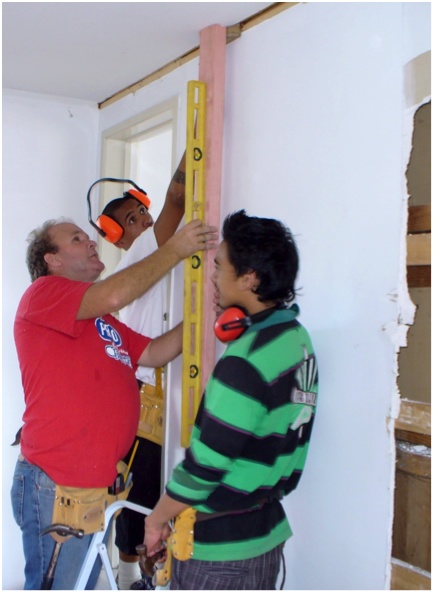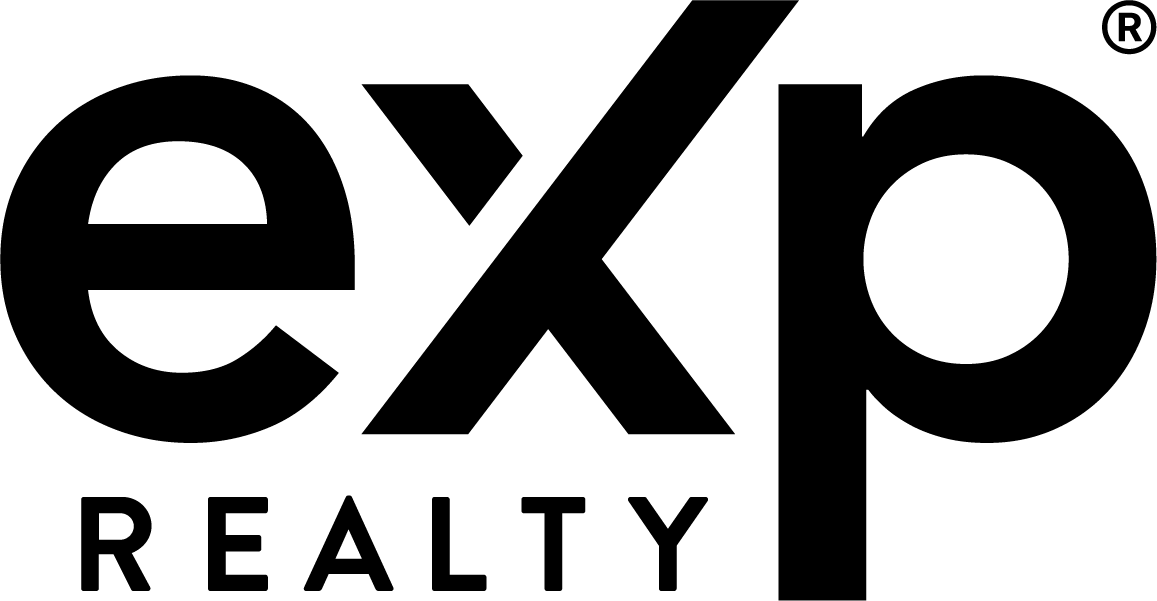It’s Cheaper to Live in a House than a Condo
If you’ve been living in an apartment or townhouse for a while, you’re either tired of those monthly strata fees, you’ve ignored them or you’ve grown numb to them and accepted them as one of your other monthly bills you need to pay like your $100 cable bill, $75 cell phone bill, etc…
Don’t you just hate the strata council charging you monthly and all the fees do is pay for garbage pickup and landscaping? What’s worse is there are barely any trees or grass on your property to landscape. Oh, but it’s got a gym! Yah, a tiny little gym where they put a treadmill or two and a cheap $200 LCD screen and they call it a gym.
I don’t know how many times I’ve heard my clients say, “I want to upsize because I can’t stand monthly strata fees… that pay for NOTHING!”
Don’t worry, I am a Realtor, I know how it works. I know what strata fees are for. To maintain the properties, save up for emergency repairs or renovations, etc… but have you seen how some strata councils spend their money? If you live in a strata property and you’ve read the minutes, you probably understand what I’m talking about.
Don’t get me wrong, some strata councils are really good with managing their money and they do a great job, but unfortunately, most are just uh… not so good.
But Gary, though I pay the monthly fees, it’s still cheaper to live in a strata complex
Oh, is it? Is it cheaper? Maybe… in the short run, but not in the long run.
Let me illustrate:
Typical strata fees for a 900 sq ft, 2 bedroom, 2 bath apartment, are around $0.35/sq ft and they include garbage pickup, landscaping, a meeting room and maybe a tiny gym.
The total strata fee would = $315/mo + $50/mo Hydro + $75/mo Gas + $100/mo Property Tax + $50/mo Home Insurance = $590/mo
Typical 4 bedroom, 2bathroom, 2 level, 2000 sq ft small home fees would look like this:
$75/mo Hydro + $125/mo Gas + $150/mo Property Tax + $100/mo Home Insurance = $450/mo
But, if I own a home, I have to pay for replacement of a hot water tank, furnace and a roof
Hot Water Tank – Typical Cost: $500, Typical Lifespan: 10 yrs (120 mos) = $4.16/mo
Roof – Typical Cost: $5000, Typical Lifespan: 20 yrs (240 mos) = $20.83/mo
Furnace – Typical Cost: $5000, Typical Lifespan: 20 yrs (240 mos) = $20.83/mo
Based on these figures, it’s about $45/mo. So, $450/mo + $45/mo = $495/mo which is still less than the $590/mo that living in a strata complex would cost you. On top of that, tell me, when the strata had to change the roof, siding, hot water tank, furnace, etc… didn’t you have to pay a special levy? How much was that levy?
Usually that levy can be from $300 to $3000 to $30,000 for a building envelope or rainscreening repair. Case closed. It’s cheaper to live in a house in the long run.
Why Real Estate Investors Prefer Land Over Apartments
When you are upsizing from an apartment or townhome to a home where you own the land, suddenly, you’re not just buying a home now, you’re buying a solid piece of LAND.
You are now a landowner. That land belongs to you. You don’t need to be a Real Estate Agent or Real Estate Investor to know that land goes up in value.
Do apartments go up in value?
Short answer: NO! Long answer: In the long, long, long run, they do go up in value… Sloooooooooowly.
Let’s do some basic calculations to illustrate this:
Let’s say you bought an apartment for $400,000 and your down payment was $100,000, you owned 25% and owe the bank 75% or $300,000. 5 yrs later, your apartment’s worth ~$440,000 (2% increase/yr), ~$487,000 in 10 yrs at that rate. So, how good of an ROI (Return on Investment) is that?
BTW: ROI (%) = NET PROFIT/INVESTMENT X 100
After 5 yrs, your home went up $40,000, you only put down $100,000 and let’s say you never paid any mortgage payments out of your pocket, you always had a tenant and the rent covered the mortgage payment and strata and all the monthly fees.
That’s $8000/yr divided by $100,000 = 8% ROI.
After 10 yrs, $87,000 gain = $8700/yr divided by $100,000 = 8.7% ROI
In the same scenario if you bought a house for $400,000, 5 yrs later, your house would be worth ~$560,000 (~7% increase/yr), ~$800,000 (double) in 10 yrs at that rate.
5 yrs later, your home went up $160,000 which equals $32,000/yr.
$32,000/yr divided by $100,000 = 32% ROI
After 10 yrs, $400,000 gain = $40,000/yr divided by $100,000 = 40% ROI
A common question I get asked all the time is, “why do houses go up faster than apartments and townhomes?” It’s actually a common business principle of supply and demand.
Land is very limited. As land becomes scarce and population increases, the city will promote densification, meaning building multi-family developments like townhomes and high rises. Instead of using 1 acre of land to build 8 homes, a developer can now take 1 acre of land and build a high rise to house 300 homes.
It’s a WIN-WIN situation for the developer and the city. The city brings a solution for affordable housing demands and the developer makes a lot more money selling 300 homes than selling 8 homes.
As the city fills up with more and more multi-family developments, single family houses and the land they sit on become Gold Mines in the eyes of everybody. They become rare like Ferraris or Blue Diamonds.
People want to buy houses on land because they know the developers, if given the go-ahead by the city, would jump on that land, pay a hefty premium and develop it and densify that land like mad.
Developers drool as they think “More $Profit/sq ft”
Investors’ eyes light up as they see a Gold Mine when they see a home on a large piece of land
Want More Space? How You Can Buy a House and Pay Less Utilities!

Upsizing means more space, doesn’t it? You’re buying a house because you just don’t have enough bedrooms in your apartment or townhome, right?
You need the extra bedrooms for an additional baby on the way or for possibly a larger family in the future. EXACTLY! Having a larger home means you can have others live with you. Indian families do that all the time. They live in a large home and have 2 or 3 families live there together.
Ok? So what, you say. Well, having 3 families live in the same place will mean higher utility bills than if there was only 1 family living there. But, 3 families sharing the mortgage payments and utility bills is WAY CHEAPER than the utility bills, rent and mortgage for 3 separate homes, right?
Therefore, families who do this are able to save a whole tonne of money while able to enjoy the benefits of a tight community, where families can help cook for one another, babysit, etc…
I’m not saying this works for everyone, but you could just have your parents live with you and that would save you a bunch of money too, not to mention they could share in the mortgage payments.
6 Tips to Make Your House the Ultimate Passive Income Vehicle
WHAT IF by buying a bigger home, you could actually earn regular cash flow every month that would REDUCE your mortgage payment?
You’d be happy, wouldn’t you? Less burden on your monthly expenses, right?
BUT WAIT!
WHAT IF that cash flow FULLY COVERED your mortgage payment?
You’d be jumping with joy, right? Get to live there FOR FREE!
BUT WAIT!
WHAT IF that cash flow FULLY COVERED your mortgage payment AND gave you a PROFIT on top of that?
WHAT??!!! I get PAID TO LIVE THERE???!!! WOO-HOO! YEAH BABY!!!
I’m going to let you in on the secrets of top real estate investors. Actually, it’s not that secret because many people use it, but most people aren’t using it effectively. The secret is the knowledge and ability to MASTER the following strategies
When you upsize and buy a bigger home, not only does it open up your options to letting your family or extended family members stay there to share expenses, you can also rent out additional rooms.
Yah, duh Gary, everyone knows that!
Like I said, everyone knows that, but few are able to MASTER it. You can rent out a basement suite as a mortgage helper but chances are the rent won’t cover your entire mortgage payment.
The key is to be creative now.
Here’s what most people do. They rent out the basement suite and charge below market value rent and utilities are separate.
Here’s what sophisticated real estate investors do. They rent out the basement suite and charge above market value rent.
If you do that, no one will rent from you
Yah, no one will rent from you if you just jack up the price WITHOUT adding any value. First, in order to justify the higher rent, include the utilities. Don’t worry, contrary to popular belief, utilities aren’t that expensive.
TIP #1: Include Utilities in Rent
Landlords think their tenants leave the stove on all night long, crank the heat up in the summer, use the washer and dryer daily.
*beep beep beep* NEWS FLASH! *beep beep beep*
Tenants don’t do that, and if your tenants do, you picked the wrong tenants and you’ve got other problems on your plate.
To jack up your rent even more, try renovating your basement suite.
I’ve seen some really crappy basement suites. Some I’d rather live in a youth hostel than in one of those. No wonder your rent is so cheap! How in the world do you expect to charge normal rent (we’re not even talking higher rent) when your basement suite is a mess?
TIP #2: Renovate and Renovate it Well
 If you want people to pay high rent for your place, then renovate it well. People will pay a premium to live in luxury. Look at the Hilton, Shangri-la, Trump, Sheraton and Four Seasons.
If you want people to pay high rent for your place, then renovate it well. People will pay a premium to live in luxury. Look at the Hilton, Shangri-la, Trump, Sheraton and Four Seasons.
Do you think they charge a premium just because they have a brand name? It’s based on quality too! Use high end flooring like hardwood or bamboo instead of laminate, do granite or slate counters, use marble or expensive tile in the washrooms.
Yes, it’s more expensive, but it’s more durable too. Pay the premium but use your brain as well, don’t buy the most expensive hardwood or import your marble from Sicily. Use high quality, but use your common sense.
But I don’t want to use high end finishings, tenants will just trash the place
Back to the same question, what kind of tenants are you choosing? Do you think the Shangri-la or Four Seasons has that problem? NO! Why is that? Because the people who can afford to live in those hotels aren’t typically the people that trash hotel rooms.
Which brings me to a critical point – charging higher rent will bring better tenants.
Ok, to end off the renovation tip, what do hotels have that rooms for rent typically don’t have?
Hotels are furnished. How do you add value to your basement suite for rent? Furnish it.
Tip #3: Furnish Your Suite
 Again, furnish it tastefully, without spending a fortune on $10,000 couches and $5000 beds. Yes, not every tenant will want your furnishings, some will pay the higher rent but want to use their own furnishings.
Again, furnish it tastefully, without spending a fortune on $10,000 couches and $5000 beds. Yes, not every tenant will want your furnishings, some will pay the higher rent but want to use their own furnishings.
In that case, just put it in storage. There are cheap storage places for about $50 – $100/mo.
Also, remember that when you consider furnishing your suite, think about what kind of tenant you are looking for. Are you trying to rent out to business executives or students? Or are you trying to rent out to families with furniture already?
Lastly, it’s good to furnish your suite and stage it so that when you show your suite to prospective tenants, they can visualize what their home could like. This is the reason why developers of new homes stage their homes to prospective buyers. It not only looks better, but it helps buyers visualize themselves owning the home.
You’re not selling your home, but if you want to charge higher rent, why wouldn’t you make it look as nice as it possible could when showing it to potential tenants?
Tip #4: Offer Flexible Lease Options
 Most people just do the 1 year lease. If you want to charge more, you can’t be like everyone else. Offer 3 month or 6 month leases and because you’re adding the flexibility, it’s added value for the tenant and so it’s justified if you charge more.
Most people just do the 1 year lease. If you want to charge more, you can’t be like everyone else. Offer 3 month or 6 month leases and because you’re adding the flexibility, it’s added value for the tenant and so it’s justified if you charge more.
If you’re looking at flipping the house after the market increases after a few years, you can also try offering a “lease with the option to own”. This is a key strategy that many real estate investors use.
When you lease a car from the dealership, you sometimes put a downpayment and then pay a monthly lease fee and at the end of your 2 to 5 yr lease, you have the option to purchase the car at a pre-agreed price that’s set when at the time of signing.
Well, who says you couldn’t do this in Real Estate?
Sample Case
The tenant doesn’t have to be renting the whole home. They could just be renting the 2 bedroom suite. Let’s just say, you live upstairs with 4 bedroom and your tenants rents the basement 2 bedroom suite.
Market rent for that 2 bedroom suite is $2500/mo and your house is worth $700,000. Your monthly mortgage payment is about $2700.
You implement the first 3 tips above, renovate, include utilities and furnish it and rent the 2 bedroom suite for $3500/mo.
Your offer to the tenant is $4000/mo with a 2 yr fixed lease (penalty for early cancellation) or month to month (your choice) with the option to buy at $750,000. The month to month option is more attractive to clients as it doesn’t lock them to a contract.
Your house, if appreciating 7%/yr would be worth $800,000 in 2 years.
Sounds complicated Gary, how is it beneficial to me?
It’s beneficial for both parties (landlord and tenant) if you understand the numbers and logic behind it.
- Because it’s well renovated, your tenant might even solicit you to buy the property which would be a perfect opportunity to implement this strategy.
- It’s beneficial for tenants because you’re setting the price of what they CAN purchase the house for before the lease ends meaning if the house goes up in value, they’re going to be buying it at a deal. Can’t say the same thing for cars as they depreciate like crazy the moment they leave the car dealership.
- $4000/mo is a little higher than the $3500/mo but THE OPTION is what attracts the tenant. Everyone knows house prices consistently shoot upwards, especially in Vancouver. The tenant basically can rent with no contract, can leave anytime, and at the end of 2 yrs decide to buy it at a deal if the market is hot.
- If the market is bad, the tenant doesn’t buy and you renegotiate the lease. But, at least you to live mortgage free AND got paid $31,200 in profit to live upstairs in those 2 years. ($4000 – $2700 = $1300/mo profit x 24 months = $31,200)
- Most tenants like to rent because they can’t afford to buy and so if the tenants don’t exercise that option, you get the profit AND you get to keep the house.
- If the tenant exercises that option because the market is hot after 2 yrs, you pocketed $31,200 in profit (more if you implement Tip #6 too) , got to live for free for 2 yrs, and you get the option of looking for your next home to do the same thing.
Tip #5: Tailor Advertising to Premium Tenants
 Most landlords just advertise in the Vancouver Sun or Craigslist. They write a very simple and cookie cutter ad that they probably got off a template on the internet.
Most landlords just advertise in the Vancouver Sun or Craigslist. They write a very simple and cookie cutter ad that they probably got off a template on the internet.
You want those premium tenants to respond, then you better write a personalized ad that specifically targets the people you’re looking for.
If you’re looking for doctors or health professionals, take pictures or emphasize how spotless your place is and how convenient it is to transit to the hospital. Also, try placing ads in a hospital bulletin board or cafes near the hospital where health professionals frequent.
If you’re looking for students, place ads in common student building bulletin boards, cafeterias, university bus stop poles or benches. Emphasize how close the nearest bus stops are and how it is furnished so they don’t have to go through the hassle of buying furniture.
Flexible lease options are great for students who just want to rent for the semester and then move back home with their parents.
Tip #6: It Pays to Homestay
On top of having your basement suite rented, if you have additional rooms, you can host some homestay students and charge them a lot because you’re including 3 meals a day for them. Once again, if you plan on giving your homestay students instant noodles as meals, then you can’t charge them much. If you give quality food, add value, then you can charge more.
In addition, homestay income is considered as a business. See this link from the Canadian Revenue Agency (CRA):
Since it’s a business, make sure you claim all your relevant expenses: utilities, groceries, gas, mortgage, whatever expenses you use for your homestay students, etc… Make sure you check with your accountant for more details.
Ok, to sum up, didn’t I say you could get paid to live there? If you apply the tips above, this is what it could look like:
East Vancouver home with 4 bedrooms upstairs and two 2 bedroom suites in the basement costs about $800,000. In Vancouver, you are only allowed 1 legal authorized suite.
So, the other suite would be unauthorized or illegal. Yes, many people do it, but it’s a hassle when the neighbors complain, the city




